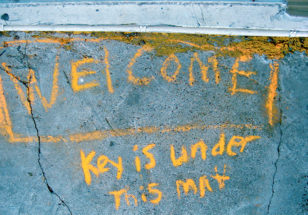Would Consumers Recommend Your Card Program?
A couple months ago, we started a series of posts on gaining customer trust, and naturally this lead us to the topic of customer loyalty. This got me thinking about the connection between loyalty and satisfaction, particularly as it applies to payment card programs. You know the type of question I’m talking about.
You have seen it hundreds of times. “On a scale of zero to 10, how likely is it that you would recommend our product to your friends and colleagues?” Not a ground breaking question for sure —there have been articles recommending using this simple question to measure customer loyalty for at least a decade.
But for today’s card programs, I think it’s a good question which far too many organizations are not utilizing in the correct way, or not at all.
The would-you-recommend-us question originates in the theory that willingness-to-recommend correlates to satisfaction and loyalty in the following ways:
-Customers who are highly likely to recommend your company—scores of 9 and 10—are highly satisfied. They are potential promoters of the company (or product or service) who generate positive word-of-mouth.
-Customers who give low scores—0 through 6—are somewhat to highly dissatisfied. They are potential detractors of the company who spread negative word-of-mouth.
-Customers who give scores of 7 or 8 are passively satisfied. Although they are generally satisfied with your card program and services, they are not going to be detractors. But their level of satisfaction is not so high that they would be promoters of the company either.
Your net promoter score is the difference in the percentage of customers who are promoters and the percentage who are detractors. [For example, if 20% of your customers are promoters and 50% of your customers are detractors, then your net promoter score is -30.] There is supposedly a close correlation between net promoter scores and a your revenue growth. Obviously, the higher the net promoter score, the more likely your buyers and customers are to generate positive word-of-mouth.
The Growing Impact of Word-of-Mouth
With the rise of social media and the internet, the impact of word-of-mouth—positive or negative—has never been greater. Add to this the proliferation of mobile devices and we have a world where your customers and potential customers are always online, always connected and always sharing their reactions and impressions.
Increasingly, your customers and potential customers are making up their minds about your company, card products and services based upon what is being said about you online. Your biggest hurdle may no longer be your competitors; it may be the ability of buyers to learn about you on their own from online reviews, posts, blogs, yelps and tweets—making it increasingly difficult for you to control the message.
Therefore, managing the customer experience so that it generates positive word-of-mouth – as we discussed in this post – is increasingly important. The would-you-recommend-us question can give you some insight into how well you are doing that. The worry is that companies ask the would-you- recommend-us question without doing enough follow-up to understand what it is they are doing right or wrong.
The Cardinal Rule of Customer Satisfaction Surveys
The cardinal rule of customer satisfaction surveys is a simple one: if you are not prepared to make changes based upon customer feedback, then do not do a customer satisfaction survey.
Conducting customer satisfaction surveys contains two inherent dangers. The first is that you are asking your customers to remember annoyances, difficulties, problems, etc.—things that they don’t like about your company. Asking your survey questions can lower your customers’ sense of satisfaction.
This makes the second danger all the more critical: if you do not make changes based upon the feedback your customers provide, your message to them is that you do not really care about their feedback or the difficulties they have experienced. Customer satisfaction surveys can have a negative impact on customer experience—and actually increase negative word-of-mouth.
So, “would you recommend us?” can be an incredibly useful question to ask customers—if you ask the follow-up questions to find out why or why not—and if the answers generate change. Otherwise, frankly, I suggest you don’t ask.
What are your thoughts on these surveys? Have you used them for your card program? What did you do with the intelligence collected?








